Knife offenders lack male role models, says senior police officer
- Published
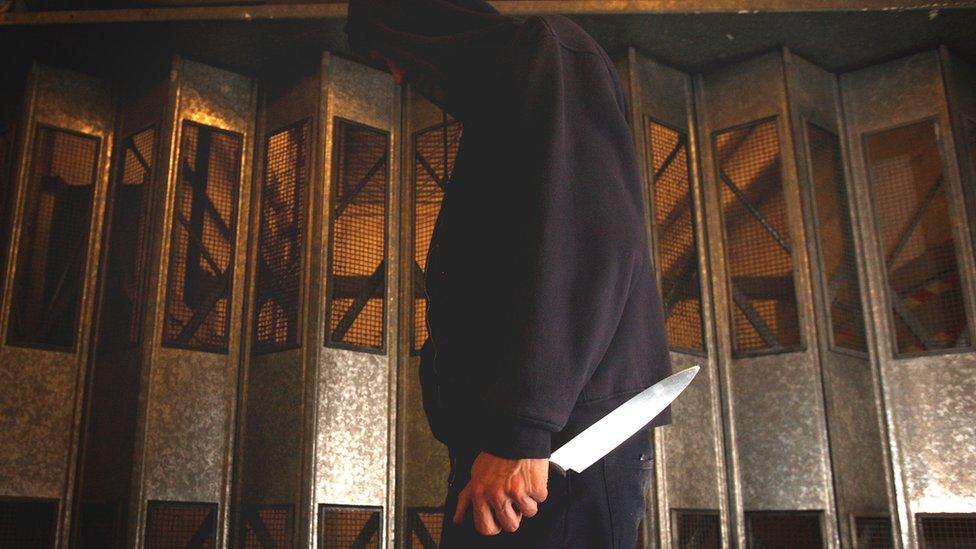
A lack of male role models is a key factor behind the increase in knife crime and gang violence, a senior police officer has suggested.
Bedfordshire Assistant Chief Constable Jackie Sebire said some young people who do not have the "protective factor" of a father figure instead look up to drug dealers and gangsters.
She said it was "too easy" to blame police cuts, social media and drugs.
The government said early intervention projects were a focus of its efforts.
ACC Sebire, who leads on serious violence for the National Police Chiefs' Council (NPCC), said an absence of father figures affects children in affluent areas as well as those from disadvantaged backgrounds.
"We don't talk enough" about the issue, she added.
A report published last year estimated that about 27,000 children in England considered themselves to be in a gang.
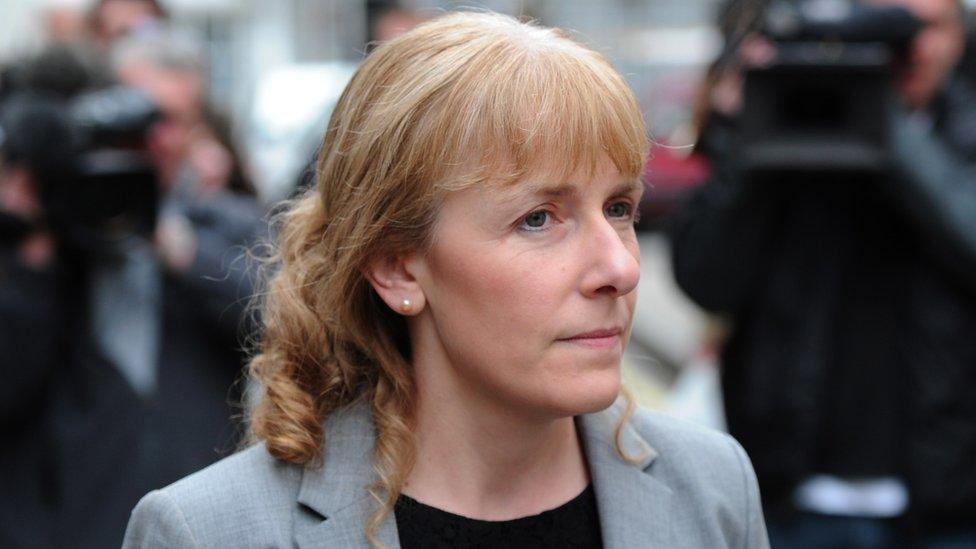
ACC Sebire is a former Scotland Yard detective with more 25 years' experience
However, a much lower figure of 6,560 children were actually known by youth offending teams or children's services to be involved in gangs.
Sheldon Thomas, founder of Gangsline, which provides support to young people involved or at risk of gang activity, said "bad parenting, absent fathers and bad male role models" are among the biggest problems when tackling gang violence.
Michael Carver is the Lead Nurse for Violence Reduction at The Royal London Hospital.
Mr Thomas, who speaks of his own experience as a gang member in the 1970s, said that if parents do not spend time with their children, then their child "is more likely to end up down the wrong road".
ACC Sebire said: "Where you do have positive male role models, they are potentially the drug dealers, or the exploiters or the organised criminal networks - they become the positive male role model."
The "worst thing", she said, was when both parents refused to attend a police station after their children had been arrested.
"That's for me, one of the saddest things that I see... because actually they [the parents] can't be bothered."
But speaking to reporters at the NPCC conference in Westminster this week, ACC Sebire acknowledged a number of factors contributed to the problem of knife crime.


In 2018 the Home Office said drugs, and in particular a surge in the supply of cocaine, was the main "driver" behind the rise in serious violence.
Other possible factors were said to be the growth of social media and an increase in school exclusions and children in care.
But there were only two passing references to "role models" in the department's 114-page strategy document and no mention of how the absence of such father figures might lead young people down the path towards drug dealing and violent crime.
Discussions about ways to reduce violent crime have also tended to focus on other issues, such as resources, stop-and-search powers and sentencing.
It has been left largely to youth workers, mentors and former gang members to highlight the importance of positive role models, which is why the comments of Jackie Sebire, a former Scotland Yard detective with over 25 years' experience in policing, are so significant.

Patrick Green, chief executive officer of anti-knife charity the Ben Kinsella Trust, said ACC Sebire was "absolutely right" to cite the role of positive male models.
"When this is absent, young boys tend to be more vulnerable to negative influences."
However, he added there is "no single answer" and stressed the need for other root causes such as poverty, deprivation and inequality to be tackled.
A government spokesperson highlighted plans to recruit extra police officers over the next three years and initiatives to tackle the root causes of serious violence.
They added: "We recognise the role trusted role models have to play and to steer young people away from crime and to stop young people being exploited by gangs, we are investing heavily in community-based early intervention projects."
- Published16 January 2020
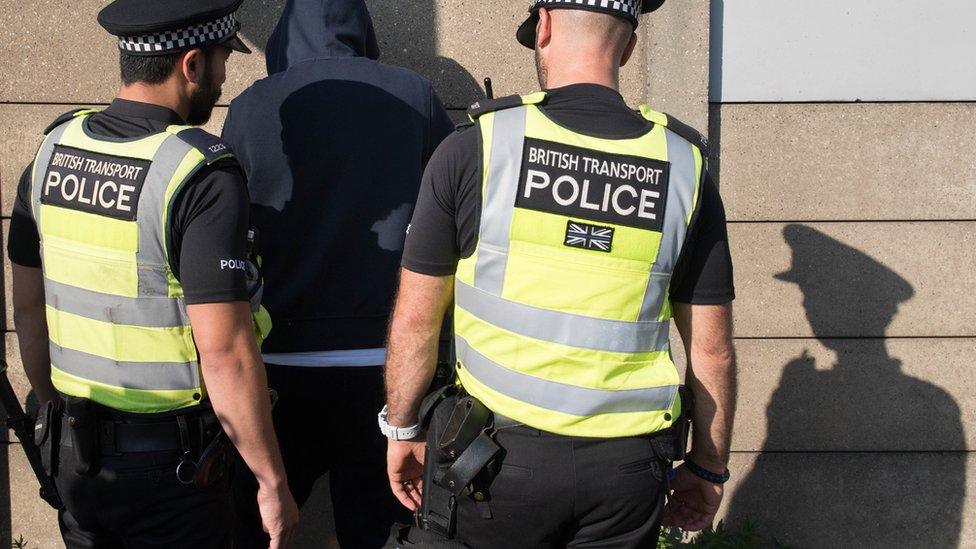
- Published25 February 2020
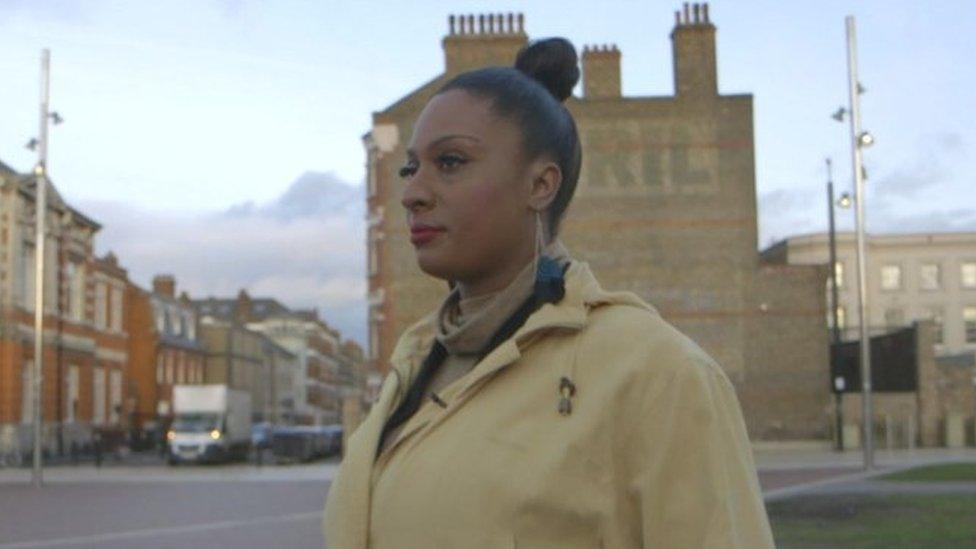
- Published7 October 2019
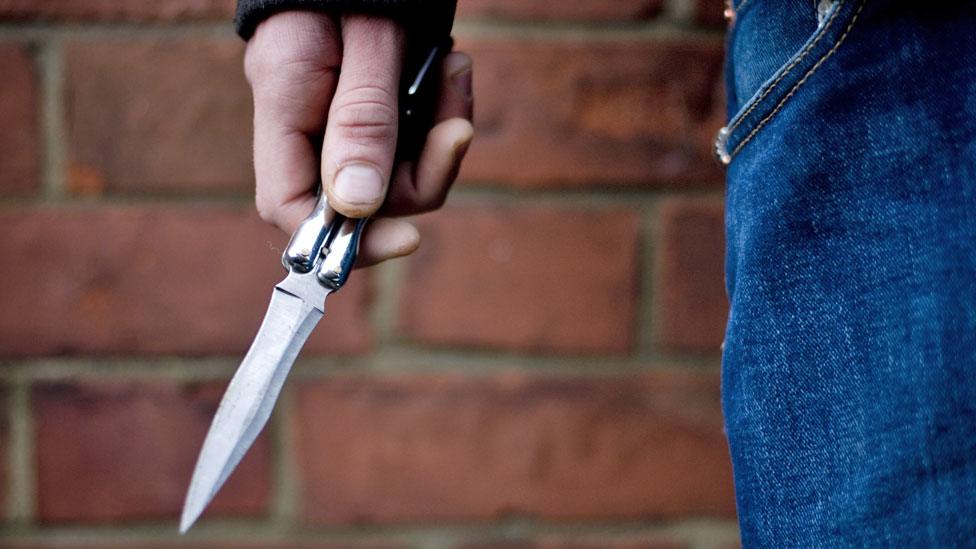
- Published18 July 2019